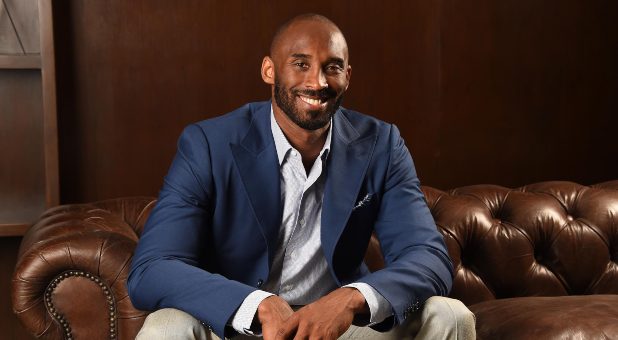How Christians Should Respond to Kobe Bryant’s Death
Kobe Bryant—dead.
There must be a mistake. I glanced at the Apple News on my app and clicked another headline bearing a similar message.
Disbelief morphed to an intense craving to gain more information. A helicopter crash killed Kobe? And his daughter? And seven other victims?
For the rest of Sunday and a huge chunk of the next two days, I ruminated on him. I pecked away at my phone, needing to grieve this shocking loss by researching how others are reacting, emerging information about the accident, scanning pictures, and selecting news outlets and scouting their blurbs on this basketball giant. It’s as though his tragic demise created in me a giant crater of need to consume every Kobe-related news I could find.
Like other Angelenos, I enjoyed watching him and the Lakers trounce their opponents, but I’m far from a diehard basketball fan. I didn’t have the privilege to know Kobe personally. Yet his untimely death has interfered with my functioning.
Multitudes are just as affected—if not more.
That’s why I opted to share what I know best, faith-based psychology, instead of letting this misery continue to merely consume my attention.
If Kobe’s Death Destabilizes You
Have you teared up, felt sick to your stomach or lost your zest? Then please review your history. It could be his death reminds you of previous losses you’ve endured.
The death of a loved one is a fierce debt collector. That is, shirking off grieving by working overtime or numbing ourselves with mood-altering substances works—temporarily. As soon as another beloved person dies, all of the grief we haven’t worked through crashes in, complicating the mourning of the recent death. Think of it like attempting to cheat on your income tax; once the IRS gets wind of your antics, you can expect them to compound the initial amount you owed with interests and penalties.
The same principle plays out even when we’ve done a measure of grieving. That’s what I discovered when a brain aneurysm killed my pastor in 2003. I attended his service, wept over his death and assumed I’d processed his untimely passing.
Four years later, however, a custodian at the university where I worked killed himself. Not only did I volunteer to attend his memorial service, I also sobbed throughout his service—without knowing why. I’d never even met the deceased!
Then the Lord revealed why I had overflowed with emotions during a stranger’s memorial service: First, both he and my pastor shared the same first name. More importantly, however, they both perished in a sudden and shocking way. The parts of me that needed to further grieve Pastor Scott’s unexpected homegoing jumped on these similarities and utilized the stranger’s memorial service to get the job done.
Moral of the story? It’s OK if Kobe’s death hits you more than you understand. Treat yourself with kindness and patience. Grieve his loss—as well as any losses you might not have completely mourned.
If Kobe’s Death Affects You Less
Attend to those in your circle whose response may not be as benign. Kobe served as a hero for many; the loss of such a figure can devastate those who were already struggling to begin with. Individuals with sparse supportive relationships or mental/emotional resources can tailspin into depression, despair or rage because of Kobe’s heartbreaking ending. It’s not just that their role model died. Along with him, the hope he sparked vanished as well.
Those overcome by his death may express their reaction through spiritual, emotional, as well as physical channels.
Knowing you’re a Christian, someone may challenge you. “Why did God allow him to die like this?”
Before you rush to defend God’s reputation, consider the myriad sentiments wrapped up in this question: Is God’s goodness fickle? Does God care about me or what brings me joy? Can He protect me from destruction? Wisdom calls to pause and pray before attempting to answer (James 1:5). Because what one hurting soul needs to hear from you may differ from another, ask the Lord for the right answer for every individual who trusts you with their pain-filled inquiry.
Kobe’s death can impact people physically and emotionally as well. Perhaps your co-worker calls in sick more often. A neighbor seems less interested in pleasurable activities. Your teenager seems more sullen.
See if those closest to you exhibit behavioral changes like these. If so, be a friend. Be attentive without being intrusive. An attitude of openness signals your availability as a resource.
As you walk with those who are journeying through grief, pray. James 5:16 (AMPC) decrees, “the earnest (heartfelt, continued) prayer of a righteous man makes tremendous power available [dynamic in its working].” Your prayers invite God’s power to move into their lives, healing broken hearts and refueling hope.
May the presence of the Prince of Peace (Isa. 9:6) blanket the families of the nine killed—and everyone whose life is touched by this tragedy. {eoa}
Audrey Davidheiser is a licensed psychologist, speaker and author of Surviving Difficult People: When Your Faith and Feelings Clash. Her passion is to promote spiritual and emotional wholeness. She devotes her Southern California practice to treat trauma in adults and couples. Visit her on aimforbreakthrough.com (Facebook/Instagram: @DrAudreyD).




























































